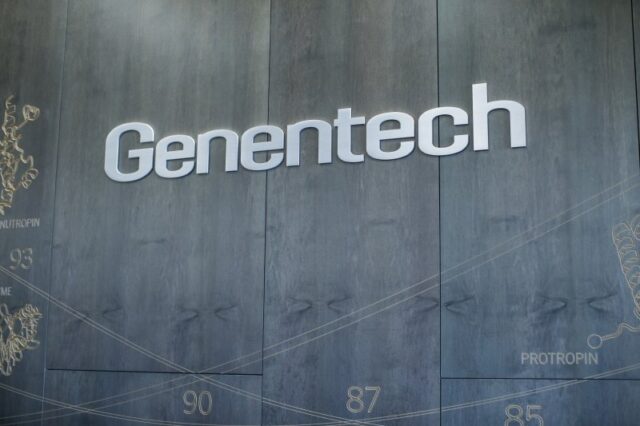
Missed the primary endpoint of a clinical trial? No problem. We’ll pick the study apart and approve your drug based on a post-hoc subgroup analysis.
That’s what the FDA did in granting Roche’s Actemra a go-ahead in patients with interstitial lung disease (ILD) associated with the rare autoimmune disease systemic sclerosis (SSc).
The approval makes Actemra the first biologic drug cleared by the FDA to slow the decline in pulmonary function in patients with SSc-ILD, Roche’s Genentech said Thursday.
SSc, also known as scleroderma, is a rare autoimmune disease that causes the immune system to mistakenly attack the body, leading to scarring and thickening of the skin and other internal organs such as the lung. The disease affects about 75,000 people in the U.S., with about 80% bearing ILD, which can be life-threatening.
Actemra’s green light in the indication comes from the phase 3 focuSSced trial in 212 adult patients. Additional data came from the phase 2/3 faSScinate trial.
RELATED: Roche hit by worst-case biosim assault—to the tune of $5.6B—as COVID-19 hurts new king Ocrevus
In neither trial did Actemra meet the primary endpoint of changes on a standard skin fibrosis measurement called the modified Rodnan Skin Score. In fact, in the focuSSced trial, Actemra performed slightly worse than placebo.
But investigators noted that patients who received Actemra had less decline on two markers of lung function compared with those who received placebo. The difference was mainly observed in about 65% of trial patients who had confirmed SSc-ILD at baseline.
One marker, forced vital capacity, looks at how much air a person can exhale. For FVC, the mean difference in changes from baseline favored the Actemra group by 241 mL. On percent predicted forced vital capacity (ppFVC), which compares FVC to that expected for a healthy person, the Actemra group’s 0.07% positive change was also better than the placebo’s 6.4% decline.
In SSc-ILD, Actemra now has its sixth FDA indication since it was first launched in the U.S. for moderate-to-severe rheumatoid arthritis in 2010. The IL-6 inhibitor recently rose to global fame for its potential role in helping severe COVID-16 patients manage a dangerous inflammatory response called cytokine storm.
In COVID-19, the drug delivered mixed results in two Roche-sponsored trials. The Empacta trial showed its use on top of standard of care significantly cut the risk of severe COVID-19 pneumonia patients advancing to mechanical ventilation, but it didn’t find a survival benefit for the drug. Results from many other investigator-sponsored trials were also not conclusive in determining Actemra’s role in treating COVID. Another Roche trial dubbed Remdacta remains ongoing and is testing Actemra in combination with Gilead Sciences’ antiviral Veklury.
A large-scale U.K. trial managed by the country’s National Institute for Health Research recently found Actemra—and Sanofi and Regeneron’s rival IL-6 med Kevzara—could reduce the risk of death in COVID patients in intensive care.
Thanks to its COVID use, Actemra pulled CHF 2.86 billion ($3.08 billion) in 2020 sales, a year-over-year increase of 32%.





